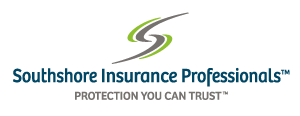Protect Your Home Before, During and After the Storm
Keeping you, your loved ones and your property safe begins with preparation. Hurricanes and other strong storms can often appear suddenly leaving little time to grab your belongings and head to a safe area. Proper preparation includes creating your emergency plan, ensuring the members of your household know what to do and where to go before a storm hits, and making sure your home and belongings are protected the best they can be.
The National Oceanic & Atmospheric Administration reported a record-breaking Atlantic hurricane season in 2020, with 30 named storms (13 became hurricanes) and 12 landfalling storms. Although Florida and Texas are the two states most commonly hit by hurricanes, all states along the Atlantic Ocean and Gulf of Mexico1 are vulnerable during hurricane season (June 1 until November 30).
Hurricanes can cause high winds, flying debris and flash flooding. If you’re in an area prone to hurricane watches and warnings, it’s important to know how to stay out of harm’s way.
Mercury Insurance recommends the following tips to prepare for hurricanes when they’re headed your way:
Head to higher ground. If you need to evacuate the area, go somewhere outside of the flood zone.
Understand the risks of your area. Extreme winds and flooding from rain and storm surges pose big risks for those people living near the coast. Those who live inland may feel safer, but wind, thunderstorms and flooding are very real risks to be considered.
Ready your emergency plan. Know where family members will meet if instructed to evacuate, as well as several options to get out of the city in case routes are blocked. Establish a meeting point ahead of time. Staying with friends or family who live outside of the local area is a good option, but also research hotels and shelters.
Reinforce your home. Close shutters or use plywood to board up windows and doors. Secure outdoor furniture, potted plants and other items that may become projectiles during the storm.
If it’s too late to evacuate, remain indoors. Stay away from windows and, if your home is located in a flood zone, get to the highest level possible.
Call your local insurance agent. Verify what is and is not covered in the event that you’re affected by a hurricane. Homeowners insurance doesn’t usually cover weather-related flooding, but flood insurance is available through the National Flood Insurance Program. If you live in a high-risk area, consider purchasing a policy. If your vehicle is damaged in a hurricane, it may be covered by your auto insurance policy if you carry comprehensive coverage, but it’s best to make sure.
Always keep important documents in a safe place. This includes copies of insurance policies, birth certificates, social security cards, important financial documents and other identification. Scan a set of these documents and bring them with you on flash drive. You should also consider backing them up on a cloud based digital storage site.
Never try to ride out the storm. Hurricanes are somewhat unpredictable and can turn or weaken at the last minute, but that’s no reason to take chances. Sitting in traffic with throngs of others looking to evacuate isn’t anyone’s idea of a good time, however, it’s better to be safe than sorry. If you don’t have personal transportation, make arrangements to evacuate with someone else or take public transportation.
Evaluate your belongings. This will help determine what to take with you should you need to leave. Toiletries, extra prescriptions, changes of clothing and irreplaceable items like photos and mementos are things to consider.
Stock an emergency kit. FEMA recommends the following items, plus a few more from Mercury:
- A three-day supply of water (one gallon per person) and non-perishable food items
- A battery-powered or hand-crank radio (and extra batteries)
- A flashlight
- A first aid kit
- A whistle to signal for help
- A can opener
- Blankets
- Pliers or a wrench to turn off utilities
- Mercury recommendations
- $200 in cash, as power may be out so credit cards won’t work
- Prescriptions for you and your pets
- Three day supply of food for your pets if you have them
Acquire a generator. Power outages are common during a hurricane so, if you’re unable to evacuate, this might come in handy.
Follow instructions. If the local authorities recommend evacuation, do so as quickly and safely as possible. Don’t return until they say it’s safe to do so. You should also call your insurance company, as your homeowners policy may provide for expenses incurred if you must evacuate your home.
Evaluate any damages. Take photos and contact your insurance company as soon as possible to determine next steps.
Turn off utilities before you leave – gas, water and electric – if you plan to evacuate. If you’re unable to leave, turn off your utilities if instructed to.
Your safety is your top priority.
Remember, it’s never too soon to be prepared.
When you are insured with an independent agent, like The Florida Insurance Chick™, she can tailor your policy to fit your insurance needs! Head over to her website, send her a text, or give her a call for a free quote!
☎️ (813) 448-7580
https://southshoreins.com/ | https://floridainschick.com/
Source: https://www.mercuryinsurance.com/resources/weather/hurricane-safety-tips.html

